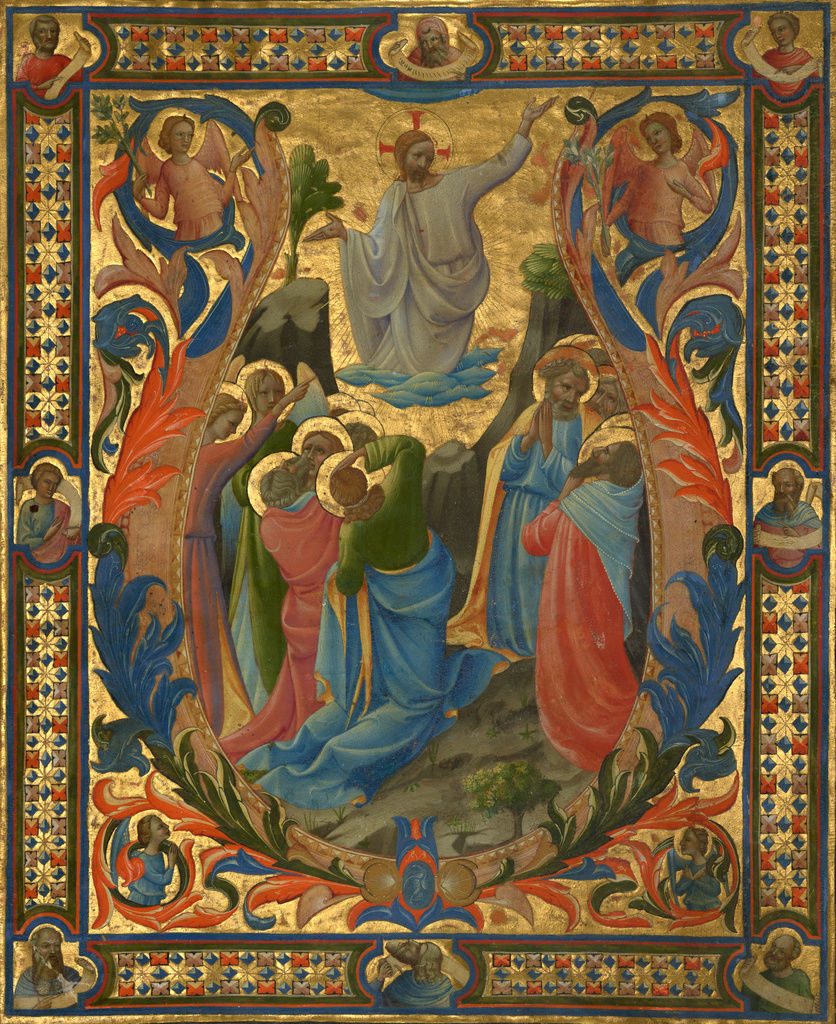Acts 1:15-17, 20-26 / Ps. 103:1-2, 11-12, 19-20 / 1 Jn. 4:11-16 / Jn. 17:11-19
Today’s First Reading begins by giving us a time frame — the events take place during the days between Christ’s ascension and Pentecost. We’re at the same point in our liturgical year. On Thursday we celebrated the Ascension, his being taken up in glory, and soon we will celebrate his sending of the Spirit upon the Church.
Jesus’ prayer in the Gospel today also captures the mood of departure and the anticipation. He is telling us today how it will be when he is no longer in the world.
By his ascension, the Lord has established his throne in heaven, as we sing in today’s Psalm. His kingdom is his Church, which continues his mission on earth.
Jesus fashioned his kingdom as a new Jerusalem and a new house of David (see Psalm 122:4-5; Revelation 21:9-14). He entrusted this kingdom to his apostles, who were to preside at the eucharistic table, and to rule with him over the restored 12 tribes of Israel (see Luke 22:29-30).
The apostles symbolize the 12 tribes and hence the fulfillment of God’s plan for Israel (see Galatians 6:16).That’s why it is crucial to replace Judas — so that the Church in its fullness receives the Spirit at Pentecost.
Peter’s leadership of the apostles is another key element of the Church as it is depicted today. Notice that Peter is unquestionably in control, interpreting the Scriptures, deciding a course of action, even defining the nature of the apostolic ministry.
No one has ever seen God, as we hear in today’s Epistle. Yet, through the Church founded on his apostles, the witnesses to the resurrection, the world will come to know and believe in God’s love, that he sent his Son to be our Savior.
Through the Church, Jesus’ pledge still comes to us — that if we love, God will remain with us in our trials and protects us from the evil one. By his word of truth he will help us grow in holiness, the perfection of love.

